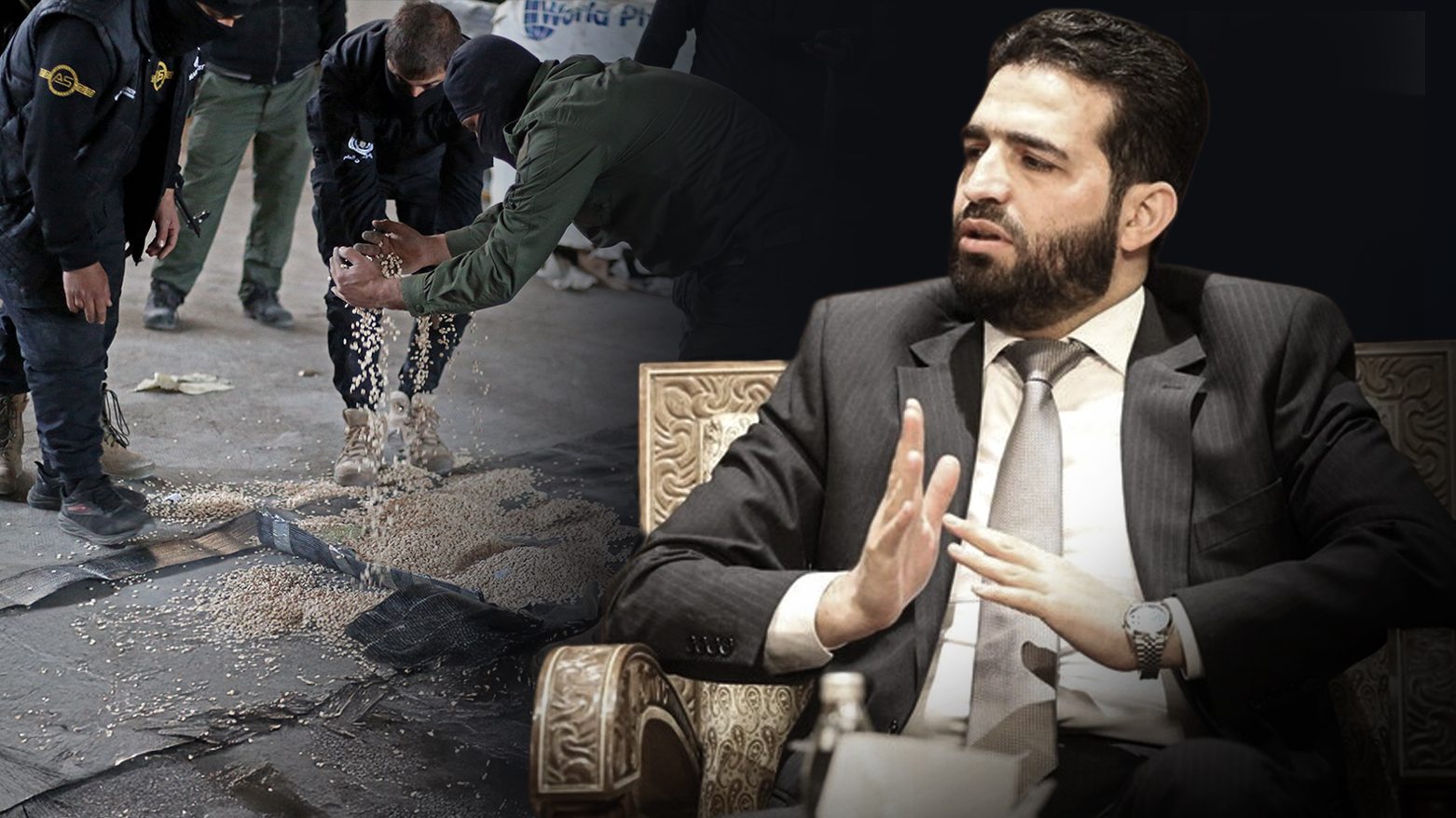Syrian Interior Minister Declares All Captagon Production Facilities Dismantled
Syria shuts all Captagon production facilities, declares end to drug trade previously linked to Assad regime. Transitional government intensifies crackdown on narcotics and ISIS threats.

By Ahora Qadi
Erbil (Kurdistan 24) – Syria’s transitional authorities have “shut down all facilities” producing the illegal amphetamine Captagon, Interior Minister Anas Khattab announced on Wednesday, marking a pivotal shift in the country’s approach to one of the Middle East’s most destabilizing drug crises.
In an interview with state-run Al-Ikhbariya TV, Khattab stated, “We have managed to halt the production of these drugs and confiscate all the equipment and facilities that were manufacturing Captagon. We can say there is currently no factory producing Captagon in Syria.”
The production and trafficking of Captagon had flourished under the previous regime led by ousted president Bashar al-Assad, with international accusations frequently directed at Assad’s brother, Maher, and the elite Fourth Division he commanded. According to Khattab, dozens of drug labs were uncovered, primarily concentrated “in the countryside of Damascus, on the Lebanese border, and in the coastal region... most of them under the control of the Fourth Division.”
For years, revenues from the illicit drug trade reportedly served as a critical financial lifeline for Assad’s regime, helping it circumvent economic collapse during the protracted civil war. Western governments had accused the regime of transforming Syria into a "narco-state" that flooded Gulf markets with the highly addictive stimulant.
Crackdown Under Transitional Leadership
Since the overthrow of Bashar al-Assad in December, Syria’s transitional government under President Ahmad al-Sharaa has intensified counter-narcotics efforts. Millions of Captagon pills have been seized in operations nationwide, though trafficking persists. Neighboring countries including Jordan, Saudi Arabia, and Turkey continue to report substantial seizures of the drug.
Khattab acknowledged these challenges, noting that the Ministry of Interior has now entered “a phase of uncovering drugs hidden in shipments prepared for export.” He added, “Every day, we seize shipments that had been previously prepared for smuggling abroad.”
The minister emphasized robust coordination with regional governments, particularly those previously overwhelmed by Syrian drug exports. “We were able to intercept numerous shipments prepared for export through cooperation and coordination with neighboring states,” he affirmed.
A Multidimensional Security Threat
Beyond drug trafficking, Khattab addressed growing security concerns posed by the Islamic State (ISIS). He warned that the group has transitioned “from chaotic operations causing mere disruption to calculated attacks with strategic objectives.”
In late May, ISIS claimed responsibility for its first attack on the new Syrian authorities, detonating a landmine that struck a patrol in the southern province of Suwayda, killing one officer. The Syrian Observatory for Human Rights and the SITE Intelligence Group both verified the incident.
Additional operations against ISIS have also occurred near Damascus and Aleppo. Authorities announced the arrest of an ISIS cell preparing attacks near the capital and confirmed the killing of three militants and one security officer during a counterterrorism raid in Aleppo last month.
Rebuilding a War-Torn State
The comprehensive anti-Captagon campaign and the pursuit of ISIS cells reflect broader efforts by the Interim administration to restore Syria’s internal security and improve regional relations. As Khattab noted, “Daily coordination with affected states is ongoing,” aiming to turn a page on Syria’s legacy as a hub for illicit trade and instability.
While significant challenges remain, Wednesday’s declaration signals a new chapter in Syria’s fight against organized crime and extremist threats, laying the groundwork for a broader rehabilitation of the country’s international standing.